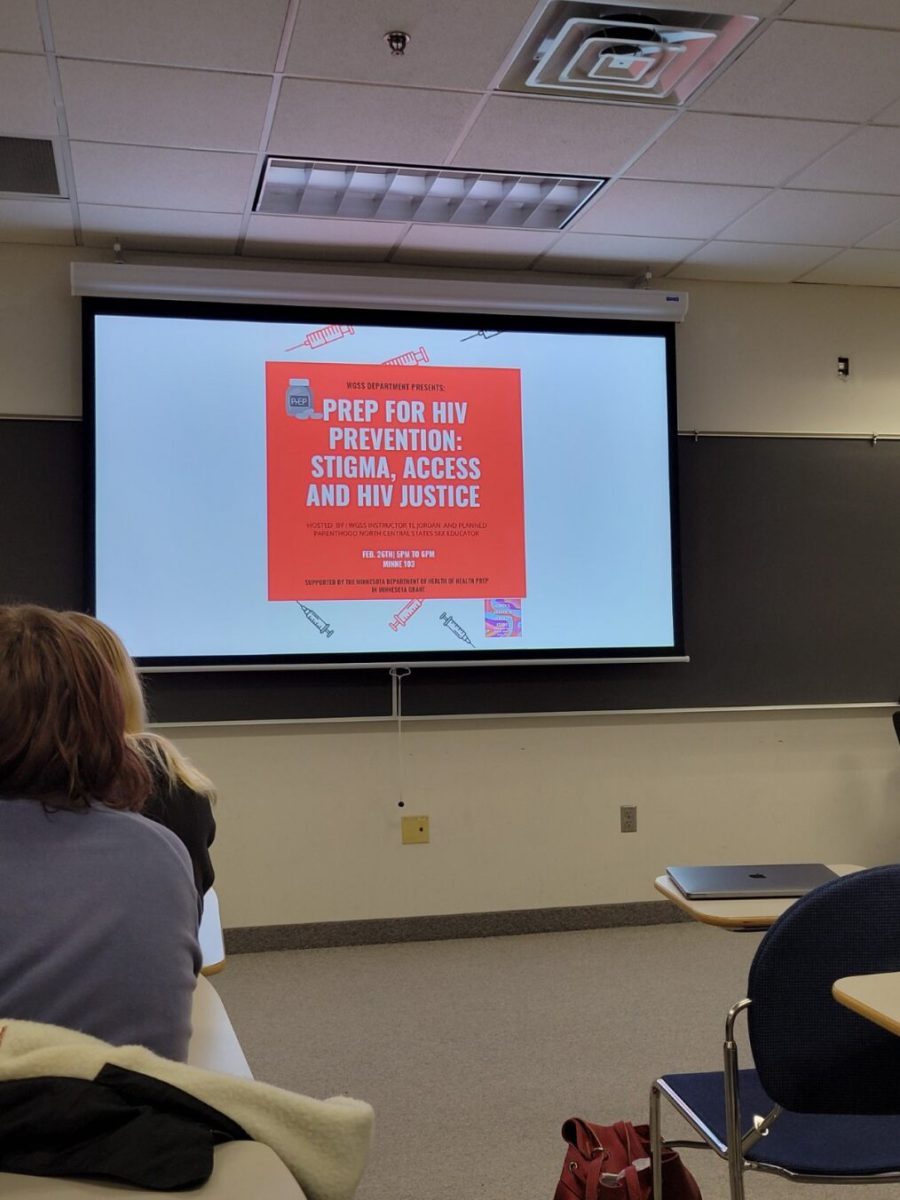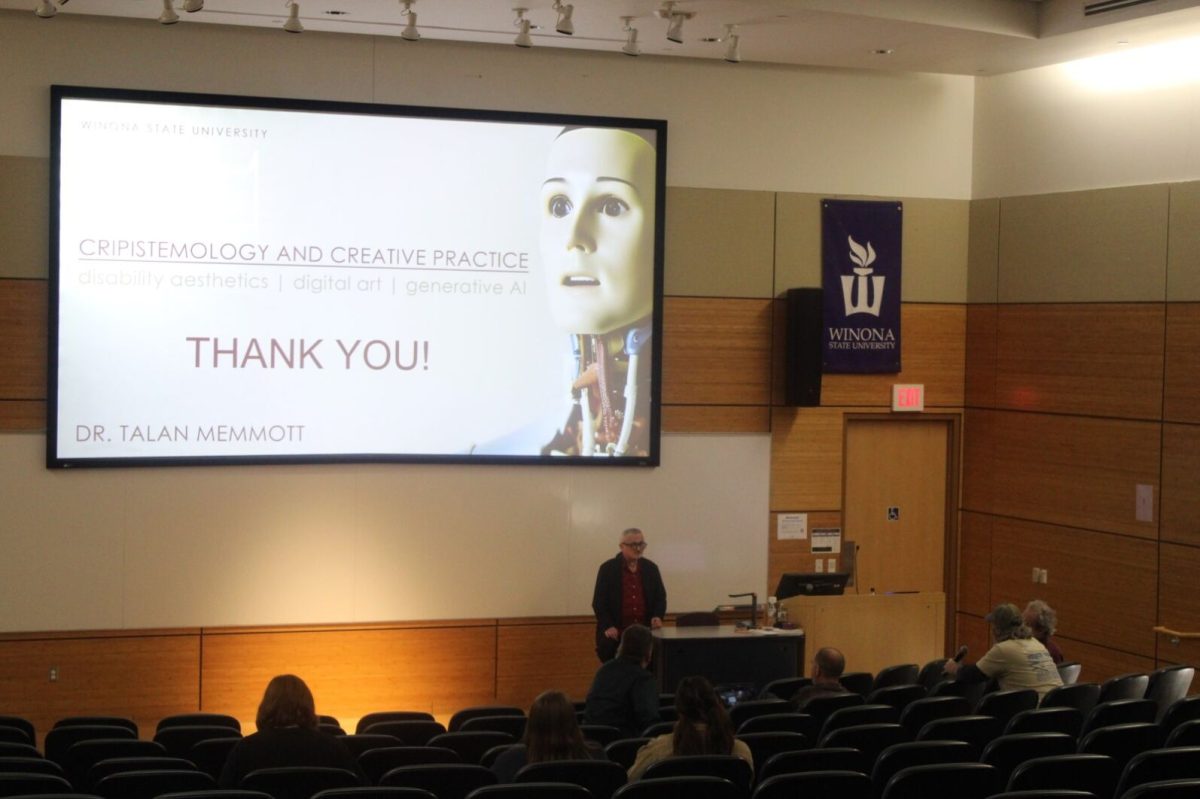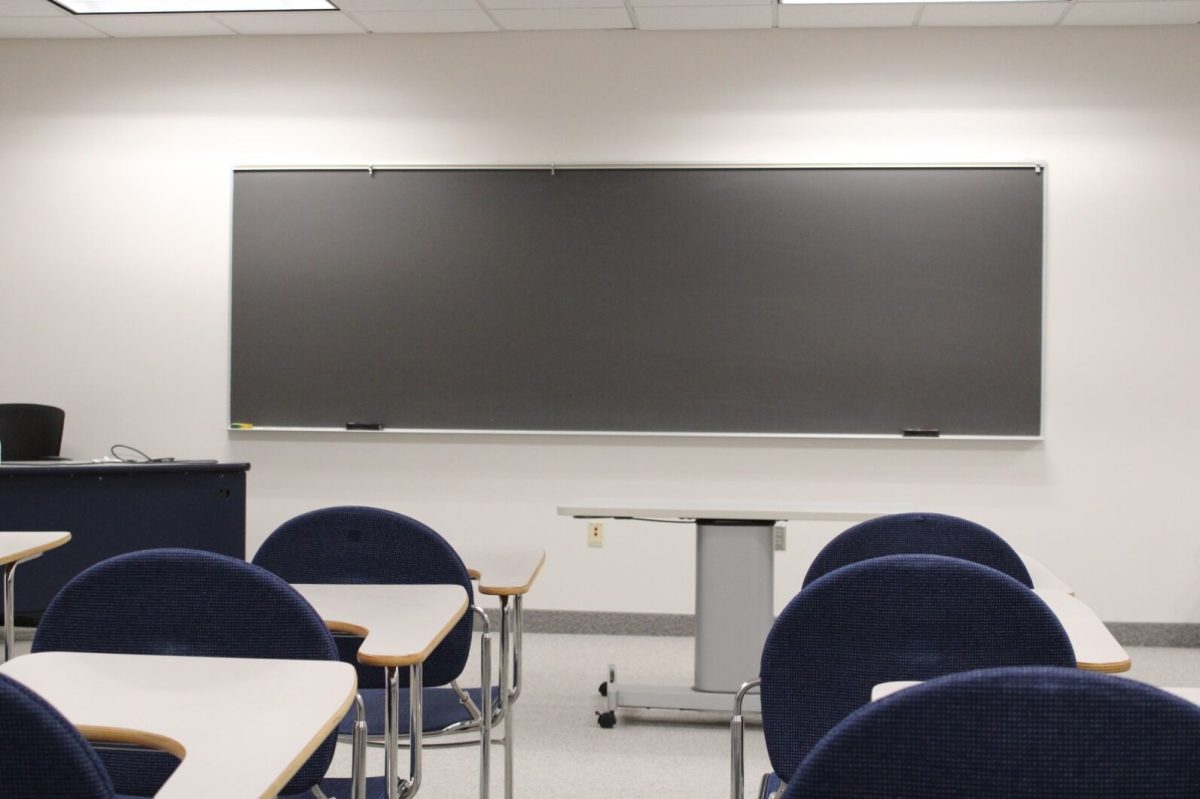Winona prize showcases student writing
January 27, 2021
The Winona Prize in creative writing was presented by the Winona State University English department for the sixth consecutive year, awarding students for their creative writing.
The Winona Prize was established in memory of Rosemary Duran, by her sons Denis and Dale Duran. Duran was a long-time Winona resident and Winona State alumni.
James Armstrong, an English professor at Winona State explained the origin of the Winona Prize and the Duran family history with the Winona community and Winona State.
“Denis Duran was Winona State class of 1970 and helped make this prize in honor of his mother Rosemary who was [a graduate in] 1934, so it has really deep roots,” Armstrong said.
The only requirements to enter into the prize are taking one creative writing course at Winona State and being a full-time student, so it welcomes students of all majors, interests and creative ability.
The Winona Prize judges submissions of poetry, fiction and creative nonfiction submitted by students, for a prize of $1,500 in each category.
Armstrong said, “you know, that’s not just like getting 10 bucks in a coupon to Subway or something.”
Winning students receive this prize money to both encourage and help students financially to reach their education goals.
“It is a significant amount of money so that’s a generous prize for a young person,” Armstrong said. “It’s also a great thing for a resume.”
Winning pieces are published in Winona’s literary and art magazine, “Satori” which is published annually, at the end of the Spring semester.
This year’s winners are Jacelyn Schley for her Creative Nonfiction piece “Where I Sleep” and Caitlyn Salinas for her poem “A Wake”, and her Fiction piece, “Santiago Perez Goes to the Moon.”
“Jacelyn’s was just a really powerful essay about her childhood and growing up in a working-class life, and it’s a very moving and powerful story,” Armstrong said.
Schley is a recent graduate with a double major in the English writing option and applied and professional writing along with a minor in psychology.
Schley wrote her piece in a creative nonfiction class at Winona State after being prompted to write about the theme of “childhood.”
“I had a bit of an unusual childhood upbringing,” Schley said. “Not too bad but not exactly ideal either, so I thought I should write about it.”
Schley explained the first five pages of her story were about all the strange places she slept in as a child, from kitchen tables, to piles of warm laundry.
“These were strange places but then I explain how the strangest place I’ve ever slept is probably my own bed,” Schley said.
Schley focused on where she slept; on a couch until she had a bed, then on a bed in the middle of the living room because she didn’t have her own room. This parallels a narrative about the origin of her family’s lifestyle, telling Schley’s story through both.
Armstrong recalled, “I remember the way she described it to me was when she came to Winona for college it was the first time she’d ever had a room of her own where she could close the door and be by herself.”
Schley states this piece honors her mother to thank her for everything she did for her growing up.
“She’s been there for everything, gave me everything and if it wasn’t for her, my life would have been a lot worse,” Schley said, “She’s the reason why despite the circumstances I was living in I grew up better than I could have.”
“Where I Sleep” explores Schley’s relationship with sleep, alongside her relationship with her parents. Schley describes her piece as a “bunch of reflections” she has made about her life, family and childhood.
“The story ends on my acknowledgment that it’s not necessarily bad, not necessarily good but it’s just another stage in my life I had to move on from,” Schley said.
Armstrong emphasized her consistent admiration of the quality of works submitted to the contest.
“The judges have always been surprised not just with the winner but with the runners up and that’s important to mention too that there’s a decent field of candidates as the level of writing
here at Winona State is high,” Armstrong said. “There’s a lot of good work coming out of this university.”
Salinas’ “A Wake” and “Santiago Perez Goes to the Moon” each take a different approach exploring what happens after death, the moon, curiosity, cultural identity and many other ideas.
“A Wake” is an exploration into what happens after death and it was an experimental kind of poem with an open-ended sort of contemplation on the afterlife,” Salinas said.
Salinas stated this poem was inspired by Greek classics and a general curiosity about the world and the human experience.
Salinas’ second piece, “Santiago Perez Goes to the Moon” is written with a child narrator and begins by crafting the story around her narrator, Santiago, and his curiosity.
“Santiago is very interested in space exploration and it’s about some of the complexities of his family and what he comes to understand is that life is a little more complicated, and ultimately what he sees, what he values and how he gets to the moon eventually,” Salinas said.
Salinas explained Santiago’s Cuban American heritage in “Santiago Perez Goes to the Moon” and emphasizes the personal importance to her of multicultural narratives.
“For me, it’s really important that we have stories that include cultural identity and not necessarily focus on it to sort of normalizing that as what I like to call the “radical normalcy” of cultural identity,” Salinas said. “It wasn’t a story that was just about his cultural identity, but it was about him living his life as a kid.”
Salinas credits her professors for guiding her and helping her through the whole process. She initially hesitated to submit her works and is grateful for their encouragement.
“Caitlyn is incandescent in her use of words she’s just got such a powerful vocabulary,” Armstrong said. “She’s bilingual and reads poetry in both languages and it really shows, she’s got such a mastery of the techniques.”
Schley and Salinas both expressed their gratitude towards the contest and the professors in the English department who encouraged their work as creative writers and believed in them.
“I’m really grateful there are people like the specific donor who recognized that the creative arts and specifically English is something that’s a really integral part of our society and I think that there are less and less people who recognize that, so I think it’s wonderful that people recognize the beauty in English and beauty in storytelling,” Salinas said.







































